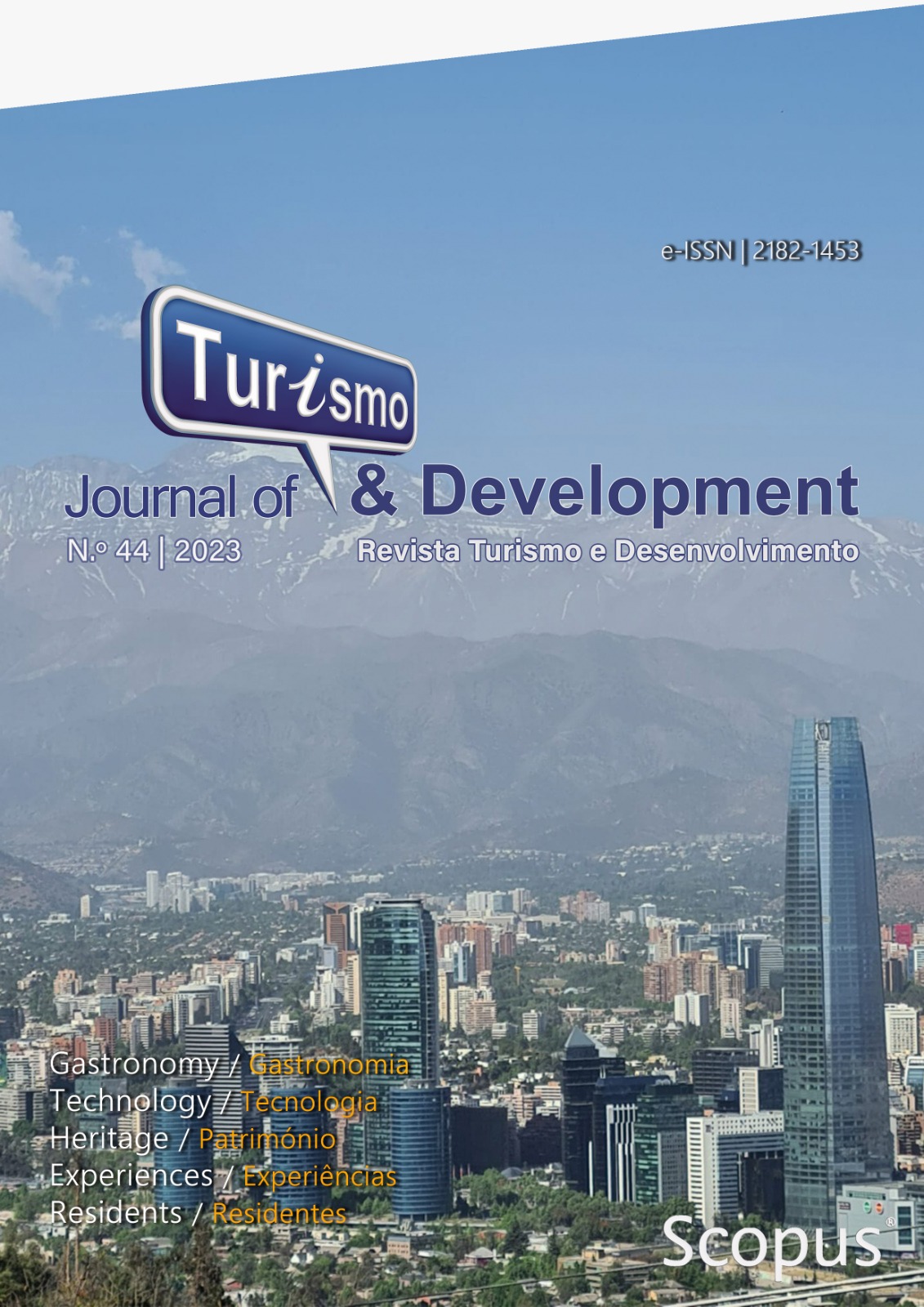Methodology for the evaluation of cultural tourism routes: A case applied to the cultural heritage of the province of Cádiz (Spain)
DOI:
https://doi.org/10.34624/rtd.v44i0.31262Palavras-chave:
touristic route, evaluation, cultural tourism, cultural itinerary, methodologyResumo
Tourist-cultural routes and itineraries have become one of the most widely used tools for the enhancement of cultural heritage. In this sense, national and international organisations have been concerned with recognising and promoting these products, as well as offering a conceptual framework for them. Despite the implementation of cultural tourism routes in the market, they often end up being underused or even unknown products, either due to their lack of equipment, dissemination or problems in the coordination and management of the elements that make up the route. Based on this hypothesis, the aim of this work is to offer a methodology for the evaluation of tourist routes organised into five areas of analysis (level of quality of the destination, level of promotion of the route, tourist use, impact on the destination and user satisfaction). Subsequently, the methodological proposal is applied to the route of the castles and monasteries in the province of Cadiz, offering an evaluation of the same through the study of the first three axes. As a result, the route analysed has not had a design methodology and, therefore, the results of its evaluation have been discrete.





